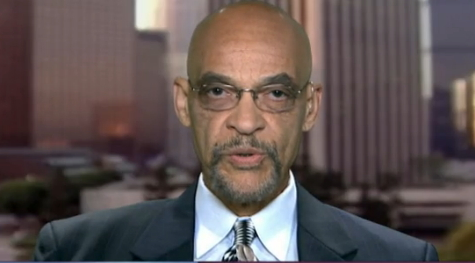Earl Ofari Hutchinson
Just why is it so darn hard to fire a cop such as NYPD officer Daniel Pantaleo accused of misconduct in the chokehold death of Eric Garner? Long before Pantaleo ever faced an administrative hearing to determine whether he should be fired, there were legions of cases where officers were caught red handed planting weapons, and dope on suspects, committing rapes, and gunning down unarmed suspects. In many cases, they were caught dead to right on videos committing these acts. The videos often went viral and were endlessly looped on social media and TV stations. Yet, in many of these cases, the officers at worst were placed on the obligatory administrative leave for an unspecified period until things cooled down. They were not fired. That’s Pantaleo’s story too.
A tangled mix of politics, inertia, and fear tell why he’s still a cop. Cops like him are public employees, more likely belong to a police union, and have civil service protection. There due process is unlike almost any other public employee though. This makes a summary firing almost impossible. It took five years for NYPD officials to haul Pantaleo before the administrative board to determine if he could be canned. Even after the board recommended he be ousted it doesn’t end of the story. He can appeal. He will be backed to the hilt by New York’s two cop unions. If all else fails and he does get the ax, he can sue charging an unlawful firing. This will run the clock on this case for many more months.
The only thing different about Pantaleo from other cops who blatantly commit abuse and keep their jobs or at least drag things out before getting the ax is that he’s in high media profile New York, and his case got even more ink with the well-publicized and denounced decision by Attorney General William Barr not to bring civil rights charges against him.
Police unions and associations as in New York pack a wallop when it comes to ensuring that cops get the full benefit of the law even when they break the law. They pump a king’s ransom of cash into the coffers of politicians, and if they buck the unions’ they pump cash and crank up their fearsome PR machine to whip them back in line.
Years ago, this paid big dividends. They got a handful of states and legions of cities to clamp a near iron clad protective shield over cops with the curiously named “law enforcement bill of rights.” The cop shield law was the brainchild of a New York congressman in the early 1970s. He obligingly proposed the law which was practically written by the NYPD Police Benevolent Association. Congress didn’t pass the law but a whole lot of other states and cities either passed the law or their version of it or agreed to abide by the dictates of the shield law.
It set up a tortuous series of obstacles to getting action on removing a bad cop from the force. There are reviews, closely monitored and guarded interrogations, and interviews, mandatory written notifications to the officer and the union, required responses from the officers almost always with the union’s aid. There can be no mention made of possible discipline actions, and absolutely no questioning of an officer permitted by civilian review boards or panels. It is strictly an internal cop affair. There’s still more
Police departments cannot publicly acknowledge that the officer is under investigation; if the officer is cleared of wrongdoing or the charges are dropped, the department may not publicly acknowledge that the investigation ever took place or even reveal the nature of the complaint.
Then there is this one thing that perplexes and infuriates so many. The officer in the spotlight is paid, that’s fully paid, while his or her case trudges through the labyrinth process. If suspended, the officer still gets a check, a full check. The added sweetener is that the officer doesn’t have to spend a penny of his or her money on a defense. The unions or even the departments must subsidize the accused officer’s legal defense. There’s no wiggle room legal on this. Any deviation from this set-in stone protocol, the case will be dismissed, and the officer is home free.
In the case of an especially outrageous police killing, some departments will simply punt to the DA for a possible prosecution. If there’s a conviction the department then can fire the cop. However, as has been shown time and again, a prosecution is the rarest rarities. A conviction when that rarity happens is almost never in the cards.
Pantaleo may indeed be the one of the relative handful of cops who finally get the boot years after killing Garner. But this won’t change things. Cops like him will still likely keep their jobs no matter how despicable they act. That makes the scary likelihood of even more Eric Garners inevitable.
Earl Ofari Hutchinson is an author and political analyst. He is a weekly co-host of the Al Sharpton Show on Radio One. He is the author of Why Black Lives Do Matter (Middle Passage Press). He is host of the weekly Hutchinson Report on Pacifica Radio.

